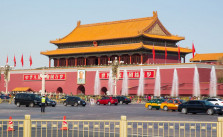Mobile Internet in Vietnam: The Comprehensive Guide to WiFi and Cellular
Vietnam has embraced the digital age with open arms. The proliferation of smartphones and mobile devices has led to an increased demand for reliable internet access, making it crucial for individuals and businesses to stay connected. In this blog, we will explore various aspects of mobile internet in Vietnam, providing tourists with useful tips and practical advice to help you remain connected during your Vietnam travel.
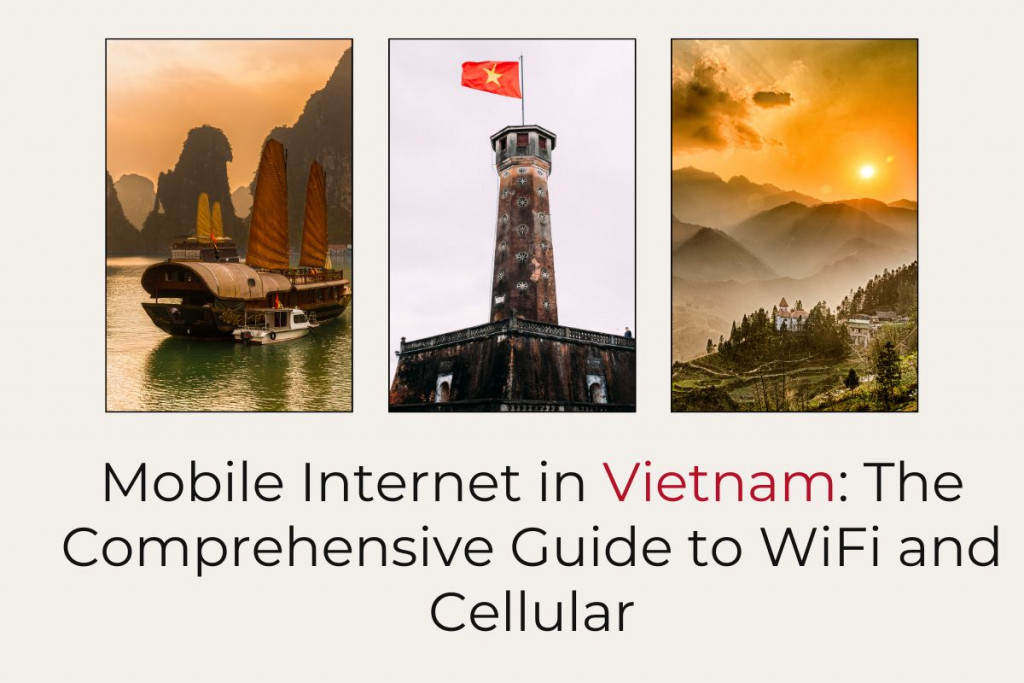
Table of Contents
I. How is the internet speed in Vietnam
According to Speedtest, the internet speeds in Vietnam have seen remarkable improvements over the past few years. Here are the key points:
1. Vietnam’s Mobile Internet Speeds
- In June 2024 Speedtest Global Index ranked Vietnam’s mobile internet speeds 62nd globally for median download speed and 66th for median upload speed. (according to Speedtest).
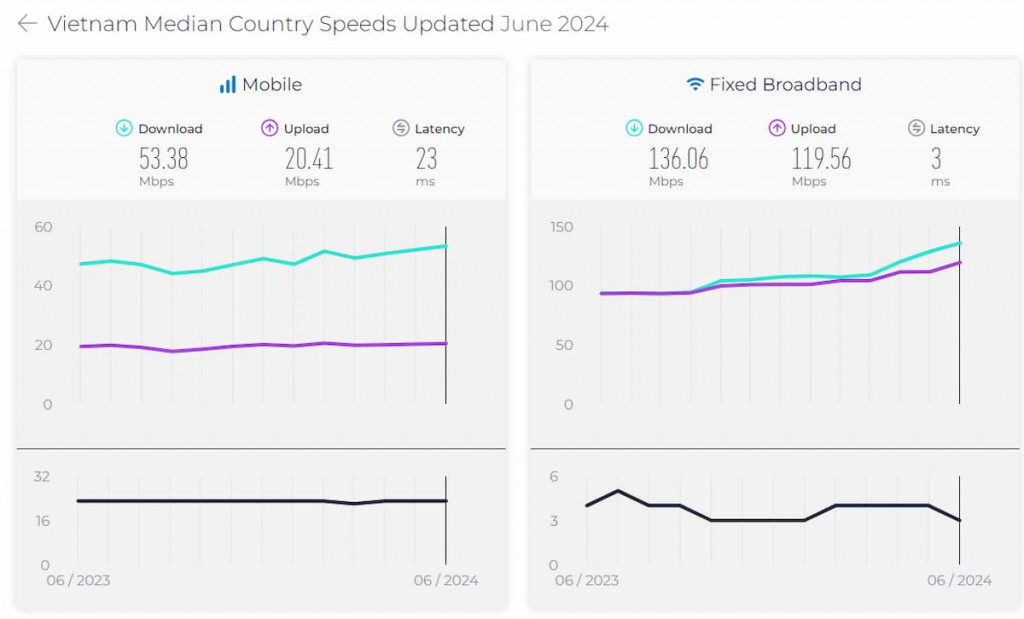
2. Vietnam Fixed Broadband Speeds
- For fixed broadband, Vietnam placed 62nd in the world for median download speed and 59th for median upload speed.
- Latency for both mobile and fixed was also relatively low at under 30ms, allowing for interactive online activities.
Major Cities Ranking
- Ho Chi Minh City ranked highest for Vietnam, placing 38th globally with a median download speed of 96.32 Mbps in June 2024.
- Hanoi came in 54th place worldwide, delivering a median of 74.52 Mbps download.
So in summary, while limited nationally, internet speeds in top Vietnamese cities compare more competitively to a global standard.
II. Is WiFi good in Vietnam?
In Vietnam, WiFi is popular in every area: both in rural and urban areas, cafes, restaurants, hotels, and also in public spaces, making it convenient for tourists to stay connected in Vietnam.
Availability of Public WiFi
- Public WiFi networks are prevalent in major cities, allowing users to access the internet without incurring data charges. Popular tourist destinations often provide free WiFi hotspots, enabling visitors to share their experiences on social media or navigate using maps. However, exercising caution when connecting to public networks is essential, as they may not always be secure.
- The quality of WiFi connections can vary significantly. However, visitors can offer fast and stable Wifi connections while traveling in Vietnam.
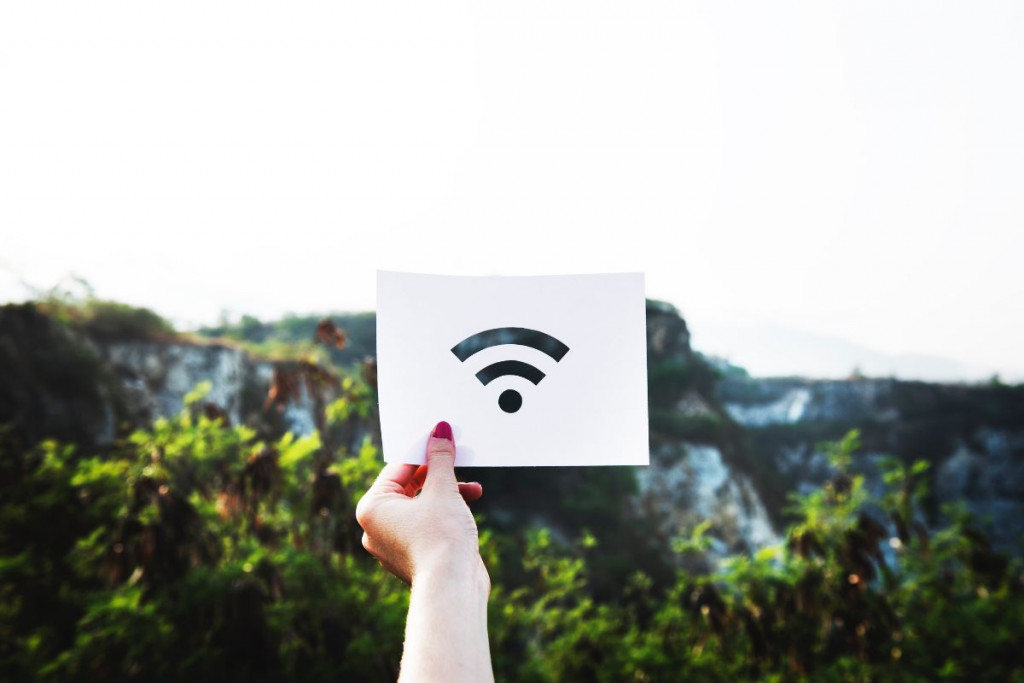
III. How is the Cellular Internet in Vietnam
Cellular internet is a popular choice for both locals and travelers in Vietnam, offering flexibility and convenience. With several mobile operators available, users can choose from various plans and packages tailored to their needs.
1. Best Mobile Operators in Vietnam
- In Vietnam, there are three major mobile operators: Vinaphone, Mobifone, and Viettel, which serve 3G, 4G, and 5G bands. Most mobile operators offer prepaid and postpaid plans, allowing both tourists and locals to choose the best suits their budget and needs. For tourists, prepaid plans are particularly popular as they provide a hassle-free way to keep connected during their travel.
2. Coverage and Availability
- Based on Opensignal’s coverage maps, Viettel Mobile and Vinaphone exhibited the largest footprints for 3G or better mobile coverage nationwide. Their signals reached more remote rural areas compared to other operators.
- Viettel, Vinaphone, and Mobifone provided near-nationwide 3G or better coverage across both urban and populated rural regions of Vietnam.
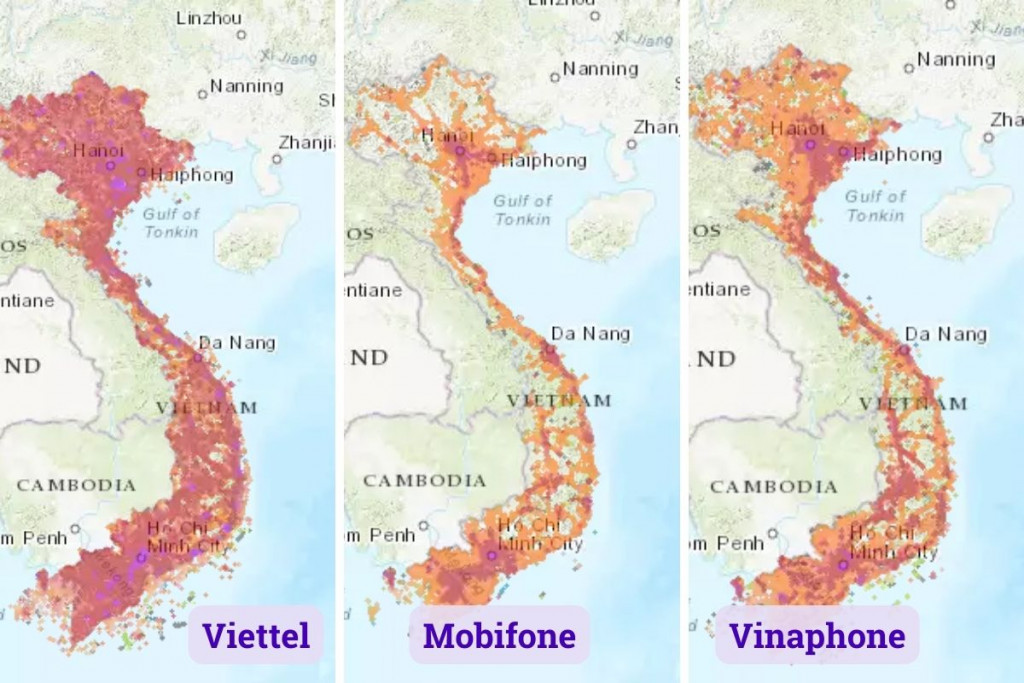
In summary, three major mobile operators have wide coverage nationwide for both tourists and locals to stay connected in Vietnam.
IV. Where to buy a Vietnamese local SIM card?
Purchasing a local SIM card in Vietnam is a straightforward process, and there are several options available for travelers. Having a local SIM card allows you to access mobile internet and make calls without incurring exorbitant roaming charges.
1. Buying a Vietnam SIM card at the airport
- Major airports in Vietnam, such as Tan Son Nhat International Airport in Ho Chi Minh City and Noi Bai International Airport in Hanoi, have kiosks and stores where you can buy SIM cards from various operators. You can activate your SIM card immediately and start using it as soon as you land.
2. Buying a Vietnam SIM card at retail stores
- Vietnamese tourists can find retail stores and authorized dealers for mobile operators throughout Vietnam. These stores are typically located in shopping malls, convenience stores, and street markets. When buying a SIM card, be sure to bring your passport, as it is required for registration purposes.
3. Online Purchase
- Some mobile operators in Vietnam offer online purchasing options. You can order a SIM card online and have it delivered to your accommodation or pick it up at a designated location. This option allows you to compare different plans and choose the one that best fits your needs before arriving in Vietnam.
V. Using Vietnam eSIM to stay connected in Vietnam
An eSIM is a digital SIM that allows you to activate a mobile plan without needing a physical SIM card. This technology is gaining popularity among travelers due to its flexibility and ease of use.
Using an eSIM offers several advantages for travelers in Vietnam. Here is why:
- eSIMs eliminates the need to physically swap SIM cards, making it easier to switch between different mobile plans.
- Additionally, eSIMs allow you to store multiple profiles on a single device, enabling you to seamlessly transition between local and international plans as needed.
Read our guide Best Vietnamese Tourist eSIMs Reviewed to explore useful information.
VI. Useful tips about the Internet in Vietnam
Staying connected while traveling in Vietnam can enhance your experience, but it’s essential to be aware of certain tips and best practices to ensure a smooth internet experience.
- Use a VPN
Using a Virtual Private Network (VPN) is highly recommended when accessing the internet in Vietnam. A VPN helps protect your online privacy and security by encrypting your internet connection. Additionally, it allows you to bypass geo-restrictions and access content that may be blocked in the country. Choose a reputable VPN provider and install the app on your device before your trip.
- Beware of Scams
While Vietnam is generally safe for travelers, it’s essential to be cautious when using public WiFi networks. Cybercriminals may set up fake networks to steal personal information. Always verify the legitimacy of a network before connecting, and avoid accessing sensitive accounts or making transactions while on public WiFi.
- Download Offline Maps and Apps
To save on data usage and ensure you can navigate without relying solely on mobile internet, consider downloading offline maps and apps before your trip. Google Maps, for example, allows you to download specific areas for offline use, making it easier to find your way around without consuming data.
- Stay Informed About Local Regulations
Internet regulations in Vietnam can differ from those in your home country. Familiarize yourself with local laws regarding internet usage, social media, and online content to avoid any potential issues. Additionally, be mindful of cultural sensitivities when sharing content online.
VII. Conclusion
Navigating the mobile internet landscape in Vietnam doesn’t have to be daunting. With a wealth of options for both WiFi and cellular connectivity, staying connected during your travels is easier than ever. By understanding the various mobile operators, SIM card purchasing options, and the benefits of eSIM technology, you can make informed decisions that suit your needs.


